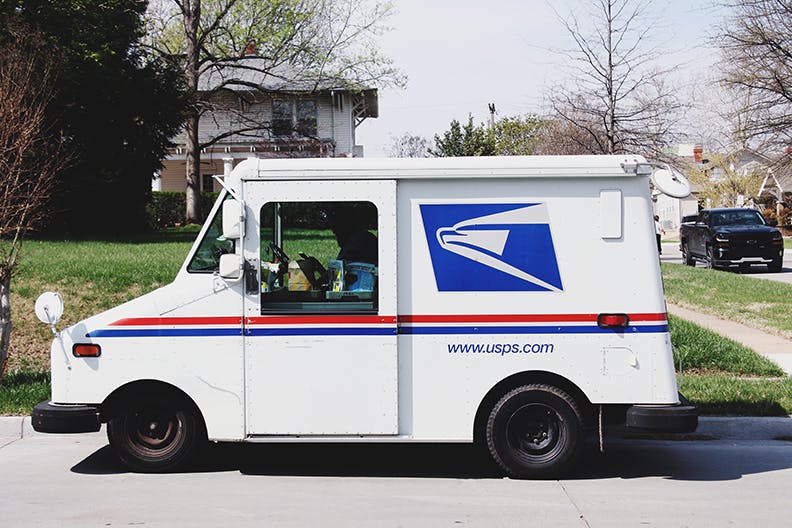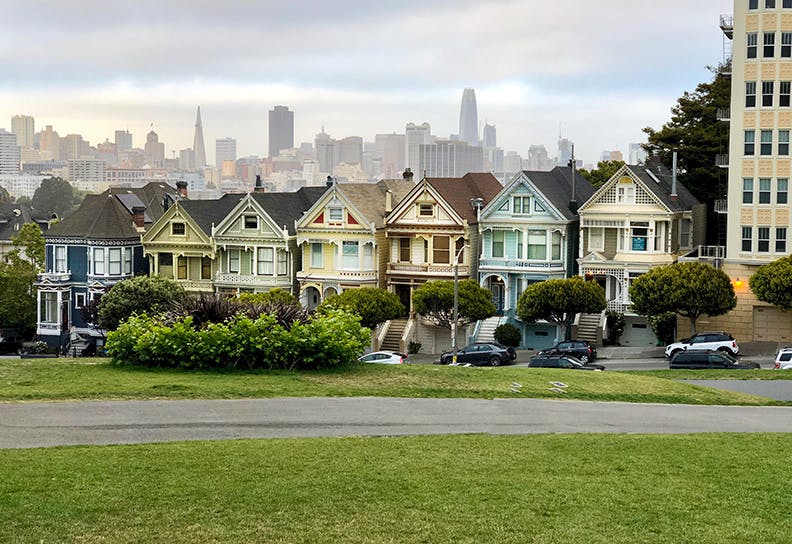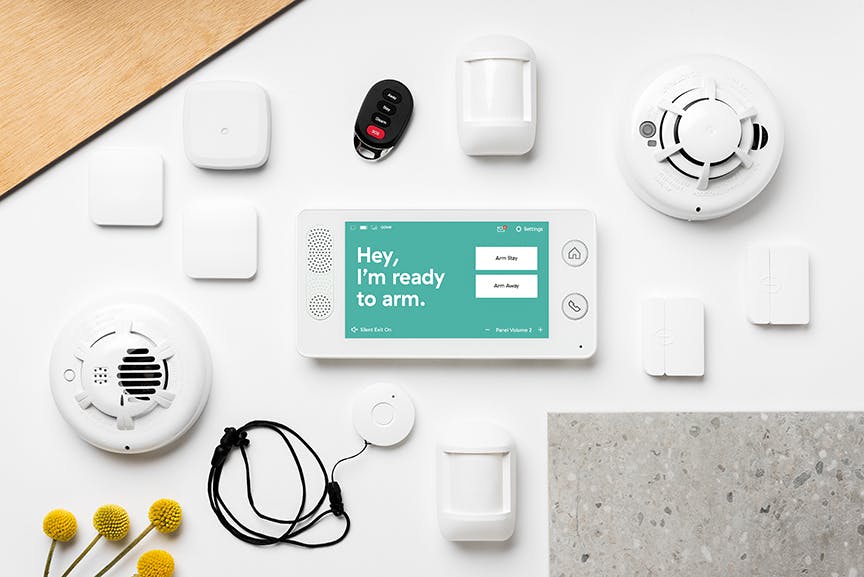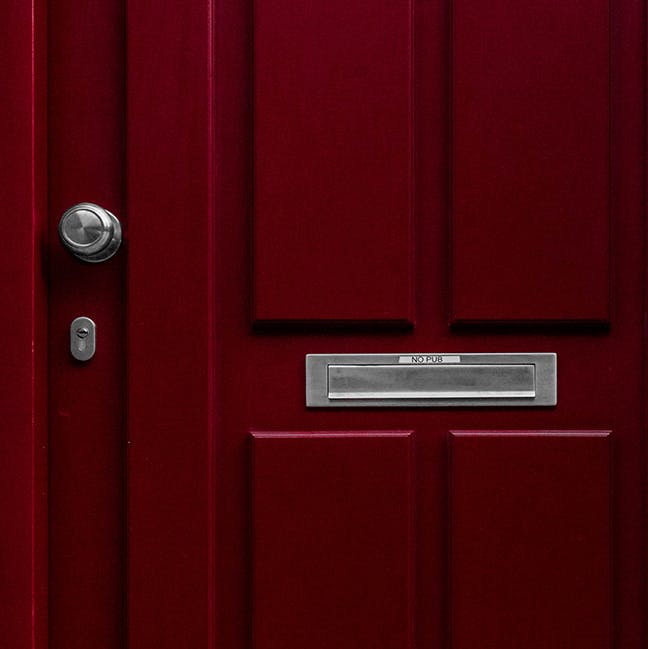
There are a lot of rumors and myths that circulate about gated communities. Some home security professionals insist that gated communities are safer than non-gated communities, while others argue that gated communities are actually more dangerous than non-gated communities. So, who’s right? Is it better to live in a gated or non-gated community?

What Counts as a Gated Community?
A gated community, by definition, is a “residential area with roads that have gates to control the movement of traffic and people into and out of the area,” according to the Merriam-Webster Dictionary. Gated communities often have two entrances to the area. To enter the community, someone inside has to buzz you into the gate or give you the gate’s password. The gate is kept closed during the day and night to help the residents inside feel safer and more protected.
Often, homeowners are drawn to gated communities because the gate presents a level of security that a non-gated community might not present. However, does this mean that a gated community is safer? There are many ways to get around a gate, especially if the intruder is on foot. An intruder can easily hop the fence or gate and walk through the community. Gated communities do offer privacy, however. It’s unlikely that you will see many strangers driving or walking through the community since getting around the gate is a hassle. Gated communities see fewer salespeople and fewer door-to-door solicitors. This makes it easier to recognize your neighbors and become more aware when a stranger has entered the community. Gated communities present many pros and cons when it comes to safety and comfortability.

Pros of Living in a Gated Community
Living in a gated community has perks, as well as disadvantages. To help you know more about what gated communities offer, we decided that we would list out the different pros and cons of living in a gated community. To start, what are the positives?
Privacy
The first pro of living in a gated community is that the residents will have privacy. Having a gate with a keycode ensures that all the amenities on the property are private. All golf courses, tennis courts, panoramic views, and swimming pools will be available only to the residents. This helps the neighborhood to feel more private. The private community ensures that the homes are protected from the outside world. Homeowners don’t have to worry about strange cars driving through the neighborhood or intruders walking on the sidewalks. Instead, it allows the residents to enjoy acres of privacy and secluded amenities.
Increased Value of Real Estate
Living in a gated community increases the real estate value of the property. The homes give off the impression of being expensive and high-quality. Often, a real estate agent will have a move-in ready home in the subdivision to show off when a buyer is looking for homes for sale. The agents will often be adamant that all other homes in the neighborhood also work to keep up their appearances. Gated homes often have an open floor plan with hardwood floors, a large bedroom, and a spacious great room. These features help to sell the homes and ensure that the people who move into the neighborhood can afford to live in the homes. Prospective properties will be kept beautiful and elegant to allure more people to come to the neighborhood.
Valued Homeowners Association
Most gated homes will have a homeowner’s association for private communities. Whether you live in the townhomes in the neighborhood, in a single family home, or rent a condo, you will be expected to obey the laws of the association. This can be seen as both a pro and a con to living in the neighborhood. Although you have to pay HOA fees, you will also receive benefits from the HOA. A pro of living with a homeowner’s association is that it ensures that the homes around you will keep their lawns in good order, respect other acre lots, and keep the waterfront and lake clean and protected. People enjoy living in clean areas, and the association will enforce laws that make the neighborhood look and feel safer. Below is a video for tips on how to make the best use of your HOA.
Interconnected Neighborhood
Because everyone lives within the gate, neighbors often get to know each other better. The neighborhood is more connected, and the neighbors know one another. The people in gated communities often form groups around the amenities available in the enclave. The golf community will go golfing on the weekends, and dog walkers will go to the dog park together. This also helps to make the neighborhood safer. Because the neighborhood is connected, it’s more likely that a successful neighborhood watch will start up in the area.
Deters Strangers
Because there is a secure gate and secure walls enclosing the estate, intruders are less likely to wander inside the walls. The lots are protected by gates, walls, and passcodes. Strangers can’t accidentally wander inside the living area of the gated community. If a stranger is inside the area, it is because the intruder entered purposefully. For the most part, the walls and the gates around the living space deter many strangers. It makes the area feel safer and more secure.
Peace of Mind
Perhaps one of the biggest draws for homeowners is the fact that gated communities offer peace of mind. Even though gated communities are usually safer, whether the area actually is or is not safer than a non-gated community, it feels safer. Every inch of square feet in the area is protected and watched over by a secure group of neighbors who are also looking to feel safe in the area. Gated communities offer peace of mind for homeowners looking to have less worry in their lives.

Cons of Living in a Gated Community
On the other hand, there are many cons to living in a gated community. Some homeowners move to gated communities only to regret making the move. Here are the cons of living in a gated community.
Less Affordable
Like we mentioned, there are many amenities that come with living in a gated community. That means that you’ll be paying for activities that you may or may not use on a daily basis. Despite paying for them, some residents may never use a golf course or use the community’s swimming pool. Homeowners who don’t care much for amenities or HOA rules will not like living in this type of community.
Hard for Delivery Persons
Because gated communities are gated, it makes it difficult for cars to enter without the passcode. For the most part, this is a good thing. However, when it comes to delivering packages, this is a negative. Delivery people will have a hard time getting your packages to your house because of the gate.
Attracts Unwanted Attention
The biggest safety concern when it comes to gated houses is that the gate can actually attract unwanted attention. Burglars look for homes that have valuables on the inside. Because of that, they often assume that homes inside gated communities will have more valuables than homes outside of a gated community. Burglars assume that gated homes are trying to protect something that has monetary value, whether or not that is actually true.
False Sense of Security
Perhaps the biggest con of living in a gated community is that it presents a false sense of security. Homeowners are more likely to leave their doors unlocked and more likely to trust their neighbors. Homeowners are also less likely to use a home security system in a gated residential community. This can increase the likelihood of burglary within a gated community simply because the homeowners are more careless. If you are moving into a community that you feel is pretty safe but would like a security system as a precaution, we recommend considering Cove’s security systems. Our security system’s might not have as many additional gadgets as other companies but they are reliable and very affordable.

Are Gated Communities Safer?
Now that we know more about the details of a gated subdivision (the pros and cons of living there), let’s figure out if it’s worth it. Specifically, are gated communities actually safer than a non-gated community?
According to the U.S. Department of Justice, crime rates in gated communities are lower, but not by a substantial number. Between 2004 and 2011, the crime rate within gated communities was 20.1 burglaries per 1,000 households. Outside gated communities, the crime rate was 24.9 per 1,000 households. Comparatively, enclosed apartment complexes with gates or keycards were burglarized at a rate of 22.3 burglaries per 1,000 households.
The gate around the community will deter crime from happening around your home. However, there are several factors that influence the safety of the gated residential community. Factors that could make the neighborhood less safe include:
- The Presence of Sex Offenders. When a person is convicted of being a sex offender, they are entered into a public database. This database allows anyone to look up where sex offenders are living. You can check the FBI sex offender registry to know if there is a sex offender in your area. If your neighborhood has sex offenders, you may want to better secure your house and keep a closer eye on your children.
- The Lack of Professional Security. Gated neighborhoods with professional security guards and professional security systems are less likely to see crime. However, if your gated community only has the gate and no guard, you could still be at risk.
- The Presence of Shady Neighbors. Everyone has neighbors who aren’t quite trustworthy. Often, gated neighborhoods give off the illusion of safety because they don’t let outsiders inside. However, what if the burglar lives inside the gated neighborhood? A significant amount of burglaries are committed by people living nearby. Be cordial but don’t blindly trust your neighbors.
- The Lack of Secured Doors. Burglars look for trusting neighborhoods, where homeowners don’t bother locking the doors. When a door is unlocked, the burglar can easily enter the home without looking as suspicious to any neighbors watching. Some burglars will case an area by watching which homes lock their doors and which homes leave their doors open.

Having a gate around the community gives homeowners a false sense of security. Because the area is gated, homeowners are more likely to blindly trust their neighbors and leave their doors to their homes unlocked. Twenty-nine percent of homeowners leave their doors unlocked in the United States. And, not surprisingly, the number one way that a burglar will enter a house is through an unlocked door. Because gated communities give homeowners a false sense of security, homeowners practically welcome burglars into their homes. To combat this, always lock your doors, no matter where you live.
Additionally, studies have shown that burglars live close to their targets. This means that it is possible that the burglar already lives inside your gated community. It’s impossible to pick your neighbors, and you might end up with a neighbor who makes the neighborhood unsafe but remembering to lock your doors and windows as well as investing in a security system can be a simple but powerful way to protect your home and family.

How to Protect Yourself in a Residential Community
No matter where you live, gated neighborhood or non-gated neighborhood, it’s important to follow the right steps to protect you and your family. Homeowners can protect their families from burglary, home invasion, and other safety threats by following each of these five steps.
1. Install a Home Security System
Home security systems have been proven to decrease potential crime by 60 percent. Home security systems deter burglars, protect families from home invasions, and keep homeowners aware of their personal security. A study conducted by the University of North Carolina at Charlotte found that security systems prevent burglars from casing a home in a majority of situations. Home security cameras, motion sensors, and alarms will deter crime from your home.
To make any home feel safe, install a home security system to protect your home and family. Cove Security works hard to protect your home and your family from potential dangers. Cove’s wireless home security systems help to deter criminals and improve the security of your home.
2. Carry a Personal Alarm and Pepper Spray
A personal alarm is a lifesaving tool that can be carried as a keychain or carried in a bag. The device is a small button that emits an ear-piercing siren sound. The sound is meant to scare away attackers and alert bystanders that something is wrong. Personal alarms should be carried at all times to ensure safety, even if you live in a gated neighborhood.
Pepper spray is another important device that can help people stay safe while walking outside. Pepper spray can be carried as a keychain and has one button on top. When the button is pressed, the pepper spray lets out a stream of chemicals. This chemical stream will cause the following symptoms:
- Swelling of eyes, nose, and throat
- Nasal and sinus discharge
- Coughing
- Shortness of breath
- Drying of the eyes
- Involuntary eye closure
- Painful burning of the skin
- Hyperventilation
These symptoms will stop and distract the attacker, allowing the victim time to get away. Using pepper spray can save a person’s life. Personal alarms and pepper sprays are important to carry on a daily basis, since the devices can be used in a variety of situations.

3. Lock Your Doors
One of the most important things a homeowner can do is lock their doors. According to various studies, nearly 30 percent of burglars are able to break into a house by simply opening the front door. If a burglar breaks into a gated neighborhood, their first move will be to walk up to homes (possibly disguised as a salesman) and try the doorknobs. As soon as the burglar finds a home with an unlocked door, the burglar will walk inside. This type of burglar is dangerous since they will enter the home regardless of whether a person is inside. This type of burglar is also the most desperate. To avoid becoming a target for desperate burglars, always lock your doors.
Some homeowners won’t lock their doors because they feel safe in their neighborhood. However, “feeling safe” is the worst reason to leave the door unlocked. Just because you trust your neighbors doesn’t mean that you should trust your neighborhood.
4. Don’t Post About Vacations
A simple mistake that people commonly make is that they post about their vacations before they leave for the vacation. Often, people are excited to be leaving for a getaway. A person might post, “I am so excited for my trip this weekend!” Even a post as simple as that is a tip for a burglar, letting them know that the house will be empty over the weekend. Posting about trips before the trips happen puts a target on your back.
Instead, always post about your vacation after you’ve returned. Post an update saying, “My weekend trip was so fun!” and add photos to show that you’re back in your house. This tells potential burglars that you’re back and the house is occupied. Some people rationalize posting about vacations because they believe that burglars are always strangers. However, in 40 percent of burglary cases, the burglar is committed by someone the homeowner knows.
5. Teach Children About Safety Rules
Children don’t alway instinctively know the difference between a stranger and a friend. Because of this children may get into unsafe situations. Parents should teach their children about “stranger danger” and other important safety rules in the community. For example, tell your children to not enter a neighbor’s house without another person present. You should also teach your children to not open the door to strangers, even if the person tells them that they are a friend. Sometimes, burglars will tell children who open the door that they are friends and that they can come inside. When the child lets them enter, the burglar will quickly gather items in the home and leave. For more personal safety precautions check out our article on safety tips.
Staying safe in a gated neighborhood is important. Homeowners who live in gated areas should never take their safety for granted. Homeowners should remain cautious about their personal security by installing home security systems, carrying personal protection devices, and teaching their children how to react to potentially dangerous situations.
